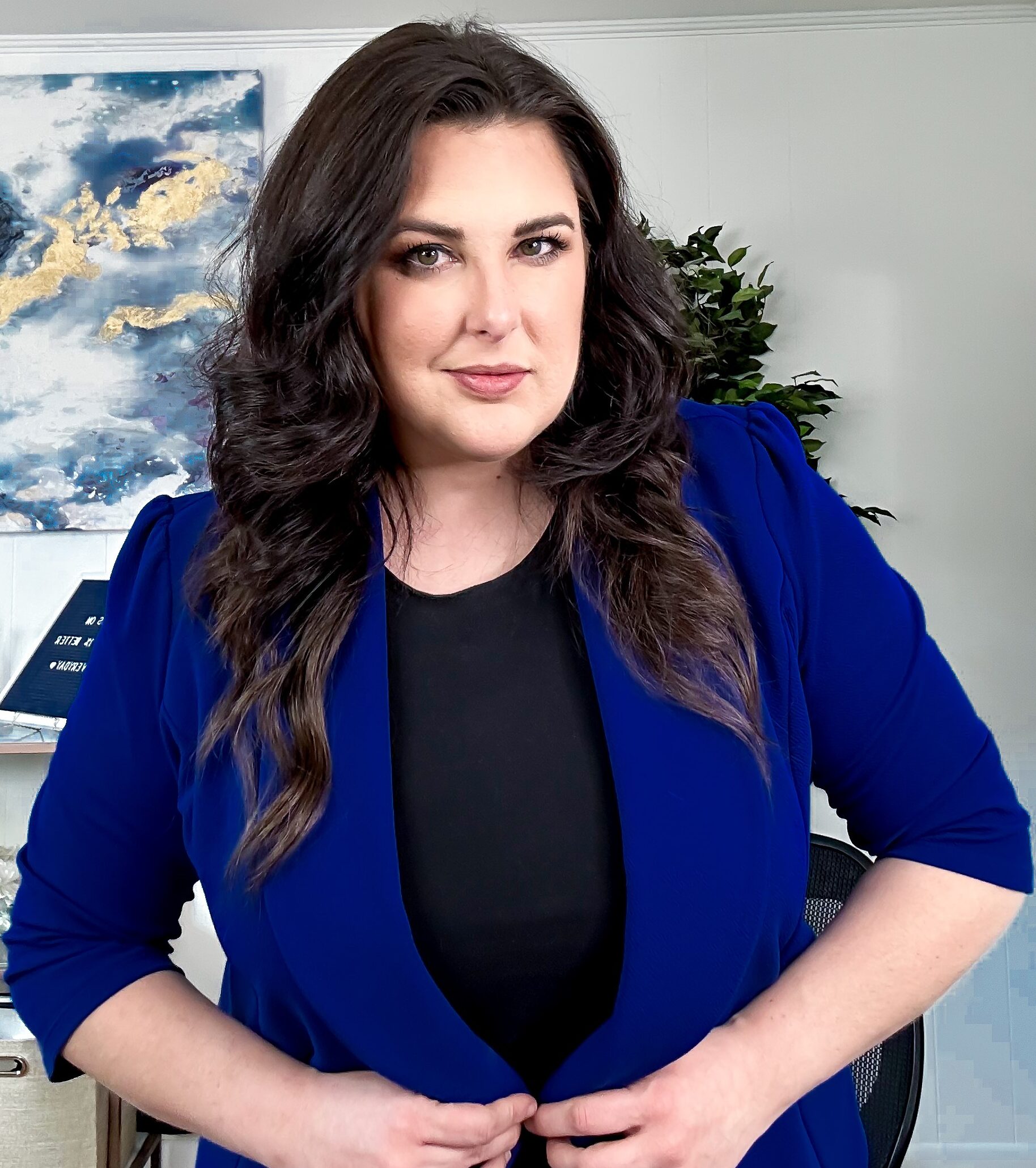- Understanding Your Employment Rights
- How To Write a Resume as a Person With a Disability
- Job Search Strategies for People With Disabilities
- Interview Preparation and Disclosure
- Highlighting Transferable Skills and Strengths
- Workplace Accommodations and Accessibility
- Building Confidence and Advocating for Yourself
- Tips for Employers and Allies
- Frequently Asked Questions About Disability Employment
Finding a job that values your skills and supports your accessibility needs is achievable. People with disabilities bring unique strengths, including adaptability, empathy, and innovation. Whether you’re entering the workforce for the first time or pursuing a career change, this guide provides practical strategies for writing a resume, preparing for interviews, understanding your rights, and advocating for success in the workplace.
Understanding Your Employment Rights
The Importance Of The Americans With Disabilities Act
The Americans with Disabilities Act (ADA) ensures that job seekers and employees with disabilities have equal opportunities. It prohibits discrimination during hiring, promotion, and training and requires employers to provide reasonable accommodations. Understanding these protections helps you ask for what you need without fear of bias.
Requesting Reasonable Accommodations
These adjustments allow you to perform your job effectively. This could mean screen-reader software, flexible hours, or accessible meeting spaces. Employers must engage in an “interactive process” to identify effective solutions, so being prepared with examples of accommodations that work for you can streamline the conversation.
Confidentiality And Disclosure
You are not required to disclose your disability unless it directly affects your ability to perform essential job functions. When disclosure is necessary, focus on accommodations and performance rather than medical details. Transparency on your terms fosters trust while maintaining control of your personal information.
How To Write a Resume as a Person With a Disability
Focus On Skills And Achievements
Lead with your professional strengths. Instead of describing duties, emphasize results — such as “Implemented scheduling system that improved efficiency by 25%.” Employers value evidence of impact, teamwork, and problem-solving far more than a list of responsibilities.
Choosing The Correct Resume Format
A well-chosen format helps highlight your capabilities:
- Functional resume: centers on skills, ideal for career changers or candidates with employment gaps.
- Combination resume: merges a skills section with a chronological work history to balance storytelling and structure.
- Chronological resume: best for candidates with steady experience in one field.
Learn more at Resume.org’s guide to resume formats.
Optional Disclosure On Your Resume
Some candidates highlight disability-related achievements, such as leadership in an accessibility committee or adaptive technology expertise. This can demonstrate advocacy and inclusivity without focusing on limitations. If you decide not to disclose, that choice is equally valid.
Use An Accessible Design
Avoid overly graphic templates that may not work with assistive technology. Choose simple fonts, consistent headings, and high contrast between text and background. You can find clean, screen-reader-friendly layouts at Resume.org.
Job Search Strategies for People With Disabilities
Explore Disability-Inclusive Employers
Many companies publicly commit to inclusive hiring through initiatives like the Disability Equality Index or partnerships with Disability:IN. Researching these employers can help you identify supportive workplaces where accessibility is already a cultural value.
Use Accessible Job Boards
In addition to mainstream platforms like Indeed or LinkedIn, explore boards such as:
- AbilityJobs.com – focuses on connecting employers with candidates with disabilities
- DisabilityJobExchange.com – filters for remote and accessible roles
- USAJobs.gov – includes positions under Schedule A hiring authority for federal roles
Leverage Vocational Rehabilitation And Training
Your state’s vocational rehabilitation (VR) program can provide counseling, interview preparation, and tuition assistance for retraining. Many VR agencies also have direct partnerships with employers looking to hire inclusively.
Network Intentionally
Join advocacy and professional organizations that support disability employment. Virtual meetups, conferences, or LinkedIn groups can introduce you to inclusive recruiters and mentors who understand your goals.
Interview Preparation and Disclosure
Deciding When To Disclose Your Disability
Disclosure is personal. You might mention your disability during the interview if it relates to an accommodation (e.g., needing captioning or a modified test). Others wait until after receiving an offer, when benefits and accommodations can be discussed in detail.
Framing Your Disability Positively
When you address your disability, emphasize how it has strengthened your adaptability, creativity, or resilience. For example, “Managing chronic pain taught me to organize my workload efficiently and stay solution-oriented under pressure.”
Addressing Gaps Or Transitions
Periods away from the workforce don’t have to be red flags. Reframe them as time spent volunteering, caregiving, or acquiring new skills through online learning. These demonstrate initiative and continued growth.
Highlighting Transferable Skills and Strengths
Examples of transferable skills
- Adaptability: Navigating different accessibility environments builds flexibility.
- Problem-solving: Finding creative solutions to barriers demonstrates innovation.
- Empathy and teamwork: Strong interpersonal skills contribute to an inclusive company culture.
- Technical proficiency: Experience with accessibility software like JAWS or ZoomText is valuable in modern workplaces.
Show Measurable Achievements
Hiring managers love numbers. Instead of saying “helped improve workflow,” write “streamlined workflow processes, reducing task completion time by 20%.” Quantified success helps recruiters visualize your impact.
Use Resume Templates Designed For Clarity
Accessible templates look professional and ensure readability for humans and screen readers. Visit Resume.org’s free resume templates to explore inclusive design options.
Workplace Accommodations and Accessibility
Examples of reasonable accommodations
- Assistive software or hardware
- Flexible hours or remote work
- Modified duties or physical adjustments
- Closed captioning and accessible communication tools
How To Request Accommodations
A written request is best for documentation. Be specific about barriers and potential solutions, such as “an adjustable desk to accommodate a wheelchair” or “captioning during meetings.” Collaboration and open communication often lead to positive outcomes.
Ensuring Accessibility In Remote Work
Remote positions can be highly accessible, but it’s important to confirm that digital platforms (Zoom, Slack, Teams) are compatible with your assistive technology. Test access early to avoid interruptions.
Building Confidence and Advocating for Yourself
Practice Self-Advocacy
Confidence grows when you can clearly express what you need to succeed. Approach these conversations as mutual problem-solving, not as special requests. Knowing your rights under the ADA helps you communicate assertively.
Develop Networking Confidence
Online communities and disability inclusion networks provide opportunities to share resources, mentorship, and career tips. These groups remind you that you are not alone in your professional journey.
Continue Professional Growth
Professional development keeps your resume current and competitive. Consider certifications in digital skills, leadership, or accessibility compliance. Check Resume.org’s career resources for learning opportunities that strengthen your credentials.
Build Resilience
Job searching can be emotionally taxing. Set realistic goals, celebrate small wins (like securing an informational interview), and reach out to peer support groups for encouragement. Persistence is key. Every application is progress toward the right fit.
Tips for Employers and Allies
Create Inclusive Hiring Processes
Employers can make a difference by offering accessible applications, clearly posting accommodation options, and training recruiters on inclusive practices.
Foster A Culture Of Inclusion
Evaluate policies regularly to ensure accessibility in meetings, events, and company communications. Inclusion should be visible throughout the organization.
Celebrate Diversity
Highlight employee success stories and acknowledge how different perspectives drive innovation. When inclusion is celebrated, it attracts more diverse talent.
Frequently Asked Questions About Disability Employment
You’re not required to disclose your disability on a resume or application. Focus on your accomplishments and skills. If disclosure helps explain your expertise or demonstrate leadership in accessibility, mention it briefly and positively.
You can request accommodations once you’re invited to an interview. Examples include extra time for written assessments, captioning, or accessible materials. Employers are obligated by law to provide reasonable accommodations.
Start with organizations recognized by the Disability Equality Index, or look for diversity statements and Employee Resource Groups (ERGs) dedicated to disability inclusion.
A functional or combination format works well for highlighting skills and achievements, especially if you have employment gaps or a diverse work background.
Resume.org offers free, HR approved resume templates to help you create a professional resume in minutes. Choose from several template options and even pre-populate a resume from your profile.

